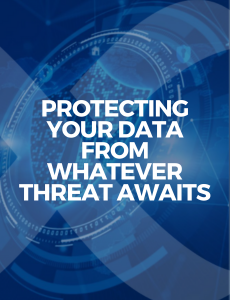The emergence of 5G infrastructure around the world promises more service-oriented support for personal and enterprise use of mobility. Although increases in speed and capacity are welcome with 5G, the real power of this ongoing evolution from Long-Term Evolution (LTE) to 5G comes from the flexibility of its underlying virtualization, as well as the extensibility of more software-defined approach to mobile infrastructure.
Ed Amoroso, CEO of TAG Cyber and veteran of the telecommunications industry – having spent 31 years at AT&T retiring as its CSO in 2016 – has prepared a new report, “Securing Emerging 5G Global Networks and Mobile Infrastructure.” In it he provides recommendations for those areas of technology management that deserve the most intense focus to properly secure 5G infrastructure in support of personal and enterprise mobile usage.
The paper focuses on six distinct areas to ensure the highest levels of cybersecurity protection for 5G infrastructure. These include supply chain, core and radio network, virtual applications, mobile endpoints, carrier security programs, and quantum readiness. The last area of focus is already seeing early adoption by major carriers like Verizon. On Sept. 3, 2020 Verizon announced several steps it has taking to harden its 5G network security including quantum-based key encryption and security network accelerators.
In the announcement, “Verizon Achieves Milestone in Future-Proofing Data from Hackers,” the telecommunications giant showcased how quantum-based technology can strengthen security and provide the best defense against eavesdropping, sharing details of a QKD test pilot conducted in the Washington, D.C. area. In the trial, Verizon said it used QKD to encrypt and send a video stream between its 5G Lab and two of its offices in Virginia and Washington DC.
Verizon’s Chief Product Development Officer Nicki Palmer is quoted saying, “We continue to innovate and discover new ways to ensure safe networks and communications down the road for both consumers and enterprises. In testing advanced security technologies, our QKD trial demonstrates how quantum-based technology can strengthen data security today and in the future.”
AT&T is also researching quantum computing and networking applications in partnership with the California Institute of Technology. The work is being performed through the Alliance for Quantum Technologies (AQT), whose mission is to unit industry, government, and academic players to develop technology behind and practical applications of quantum networking. The collaboration also includes a research and development program called INQNET, which is focused on the need for capacity and security in communications through future quantum networking technologies.
As the leading provider of quantum-safe security technologies in the U.S., Quantum Xchange is committed to assisting mobile carriers, government agencies, and standards bodies prepare for the quantum era by helping to identify vulnerabilities and ensure that next-generation cybersecurity solutions, like quantum communications and post-quantum cryptography, are prioritized within the design and development of 5G technology. We recently submitted joint comments with Toshiba Corp. in response to the National Telecommunications and Information Administration’s request for comments to inform the National Strategy to Secure 5G. Our remarks underscored the importance of understanding and caring for the threat to 5G networks posed by quantum computers.
To download a copy of the TAG Cyber report, “Securing Emerging 5G Global Networks and Mobile Infrastructure,” please visit:


